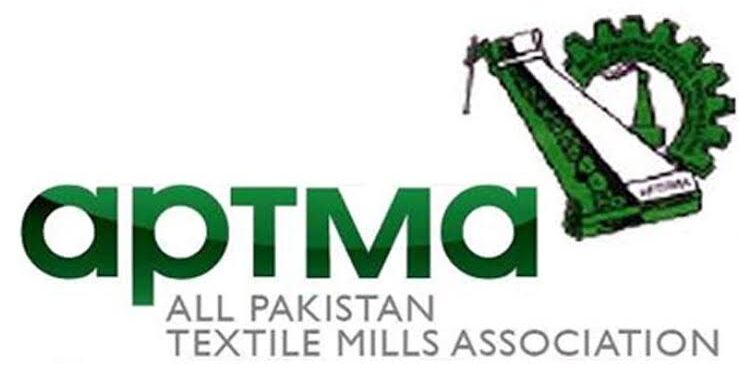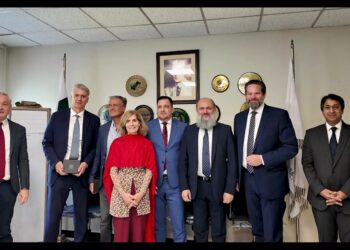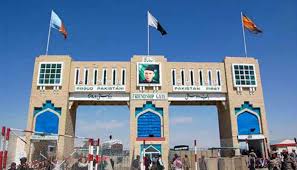ISLAMABAD : All Pakistan Textile Mills Association (APTMA) has strongly urged the government to restore the Export Facilitation Scheme (EFS) to its pre-Finance Act 2024 status, reverse these damaging policies, restore a level playing field for local manufacturers, and protect Pakistan’s industry.
On Saturday ,In a statement, Chairman APTMA, Kamran Arshad said that since the Finance Act 2024, locally produced inputs for export manufacturing have been subjected to an 18% sales tax, while imported inputs continue to enjoy sales tax and custom duty exemptions under the EFS. This policy shift disrupts the competitiveness of domestic manufacturers, particularly upstream industries such as spinning and weaving, which are integral to Pakistan’s textile value chain.
The textile sector’s body has repeatedly implored the government to reverse this unjust policy. Without urgent intervention, critical segments of the textile ecosystem risk being wiped out. Pakistan’s textile industry accounts for 40% of the country’s industrial workforce, providing livelihoods to millions of families. The current policy is not just driving businesses to closure with significant unemployment and loss of livelihoods, but also causing the destruction of an industrial base that represents billions of dollars in investment and exports.
According to APTMA, monthly imports of yarn have surged by over 7 times, signaling a dangerous shift away from locally sourced inputs for export manufacturing, adding that domestic production already struggles with high energy costs. Pakistan’s electricity rates (14-16 cents/kWh) and gas rates (over $12/MMBtu) are nearly double those in competing countries such as Uzbekistan and China, that are a major source of yarn imports and where energy costs are as low as 5-7 cents/kWh and $3.8-5/MMBtu.The taxation disparity further erodes competitiveness, leaving local manufacturers unable to compete with imported inputs .
The Association has maintained textile sector is facing structural liquidity challenges as exporters relying on local inputs face long delays—over six months—in claiming GST refunds, and still receive only partial payments of around 60% on average, as also acknowledged by the World Bank. This systemic inefficiency imposes additional interest costs of 10-15% on working capital required for procurement of inputs made in Pakistan, further eroding competitiveness and forcing exporters to turn to imported inputs. This raises serious concerns about the vision and orientation of Pakistan’s economic policies, and their alignment with global economic norms and trade practices. For instance, would it not be considered a violation of WTO rules if the roles were reversed—where imports were taxed while domestic goods were exempt? Yet, these policies effectively provide protection to imports over domestic production—an approach that is unheard of in any competitive economy.
APTMA also recognized the government’s recent efforts to curb misuse under EFS, such as reducing reconciliation timelines, and greatly appreciates these commitments. However, the tax disparity created between imported and local supplies remains a significant structural issue, incentivizing fraud and weakening the domestic industrial base.
APTMA has called on the government to take immediate and decisive actions to address these challenges undermining the competitiveness of Pakistan’s textile sector: (i) restore the EFS to its pre-Finance Act 2024 form, including the reinstatement of zero-rating on local supplies for export manufacturing;( ii) conduct a rigorous reappraisal of all EFS licensees to ensure compliance and restrict EFS licenses to firms engaged in bona fide manufacturing activities ; and (iii) expedite the rationalization of the time-period allowed for reconciliation of EFS imports and associated exports to improve system efficiency and reduce misuse.
” Beyond these immediate measures, we urge the government to explore alternative sales tax models to create a long-term sustainable and competitive tax regime,” the Association added. For instance, India’s progressive sales tax system levies increasing sales tax on goods as they move up the value chain, with full refunds for input taxes. Such an approach would maintain government revenue collection since, under the value-added GST regime, input taxes are fully refundable. Additionally, this addresses the issue of broader tax evasion and avoidance. By implementing lower tax rates on inputs, it would incentivize greater compliance, bringing more players into the formal economy. This expansion of the tax base would ultimately lead to an overall increase in revenue collection.
Additionally, mandatory traceability across the full textile value chain should be implemented to promote transparency, curtail misuse, and integrate informal sectors into the formal economy. This would further support expansion of the tax base, enhance compliance, and strengthen the industry’s foundation and competitiveness.
” We emphasize that Pakistan’s textile sector is a vital contributor to economy. Without urgent intervention, the country risks irreparable damage to an industry that sustains millions of livelihoods and represents billions of dollars in investment and exports. We call upon the government to urgently reverse these damaging policies, restore a level playing field for local manufacturers, and protect Pakistan’s industry, ” said the Association in a statement.















